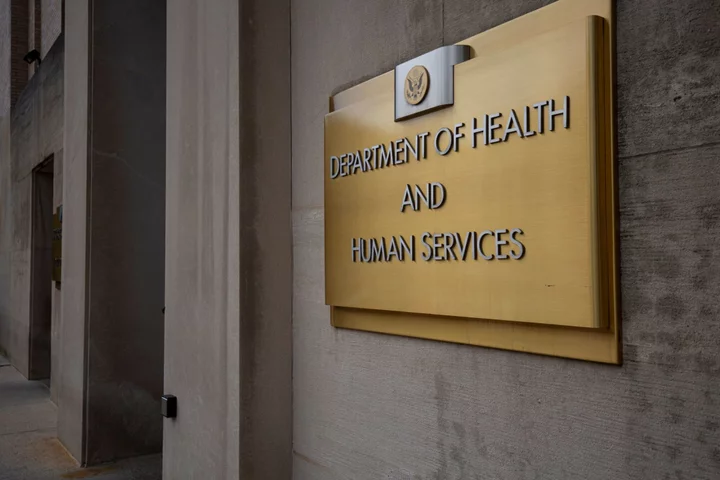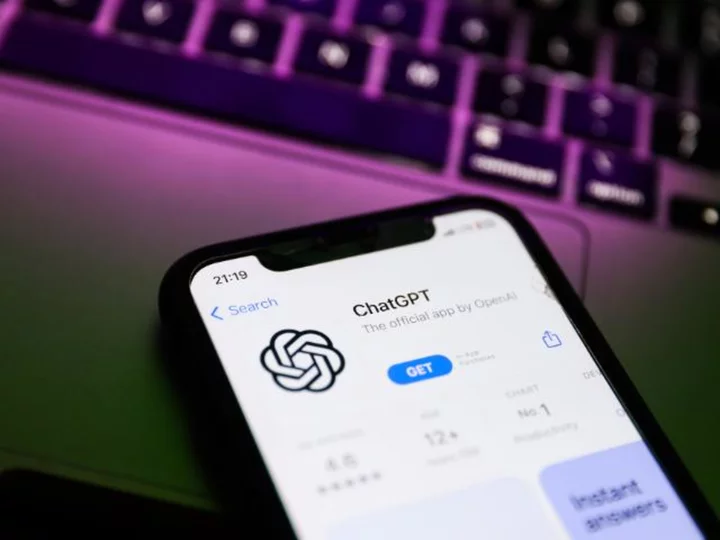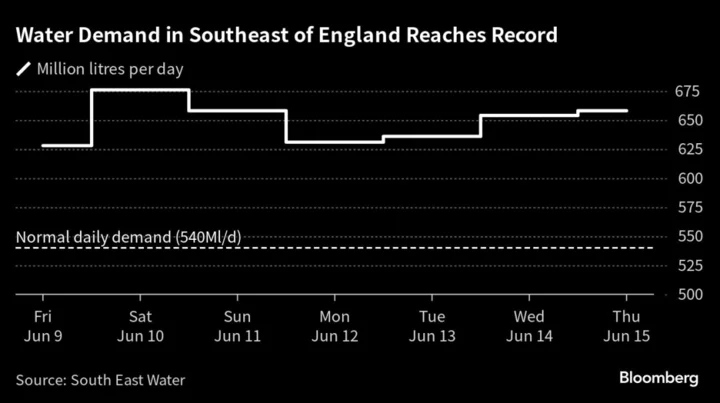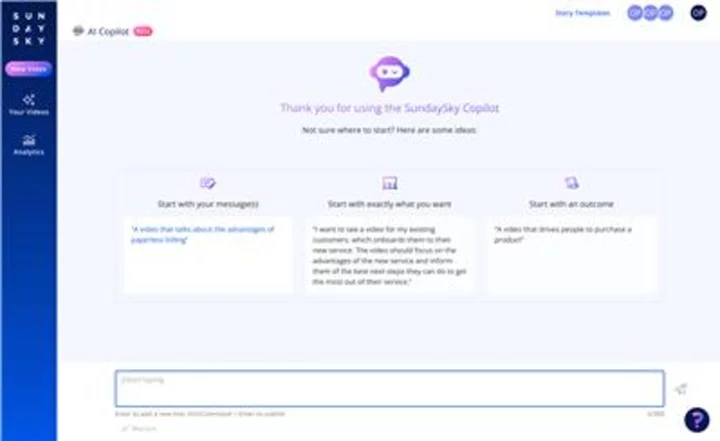
Chinese Chipmaker Asks Suppliers to Buy Back Banned Gear
Global chipmaking gear makers should treat Yangtze Memory Technologies Co. with fairness and buy back equipment which the
2023-06-29 15:52

Andrew Tate accuses YouTube of shadow-banning him and suppressing truth, Internet labels him 'fraud'
After social media ban, Andrew Tate sought solace in Rumble, where he currently streams his content and hosts his podcast, 'Emergency Meeting'
2023-06-29 14:56

Smart gloves ‘could allow stroke patients to relearn to play the piano’
Scientists have developed a pair of smart gloves that could allow stroke patients with limb weakness to relearn to play the piano. The exoskeleton glove uses artificial intelligence, moving components known as actuators, and touch sensors in a way that could help patients relearn manual tasks after losing or showing a reduced ability to move hands, fingers, or wrists. The researchers said their proof-of-concept gloves “teaches” its wearer to play the piano by “feeling” the difference between right and wrong movements. We found that the glove can learn to distinguish between correct and incorrect piano play Dr Erik Engeberg Dr Erik Engeberg, a professor at Florida Atlantic University’s department of ocean & mechanical engineering, in the US, said: “We found that the glove can learn to distinguish between correct and incorrect piano play. “This means it could be a valuable tool for personalised rehabilitation of people who wish to relearn to play music.” It is estimated that there are 1.2 million stroke survivors in the UK today. Stroke is a leading cause of disability, with almost two thirds of survivors leaving hospital with limb weakness, visual problems, and language and communication problems. The glove is designed to assist and enhance their natural hand movements, allowing them to control the flexion and extension of their fingers Dr Erik Engeberg For the study, published in Frontiers in Robotics and AI, a team of engineers designed a pair of exoskeleton gloves that uses actuators to mimic natural hand movements. Each fingertip contains 16 sensors that allows the wearer to feel the objects they touch. Prof Engeberg said: “While wearing the glove, human users have control over the movement of each finger to a significant extent. “The glove is designed to assist and enhance their natural hand movements, allowing them to control the flexion and extension of their fingers. “The glove supplies hand guidance, providing support and amplifying dexterity.” As part of the experiments, the gloves were taught to play the nursery rhyme “Mary had a little lamb” on the piano on its own using pre-programmed movements. When a person wore the gloves to play the piano, it was able to detect where the wearer went wrong in their movements, enabling them to “understand their performance and make improvements”. The economic burden on health and social care in this country demands innovative approaches to treatment and care, which have the potential to reduce the devastating effects of stroke Juliet Bouverie, Stroke Association The researchers said further work is needed to improve the accuracy of the device and make it more adaptable. But they hope that in future, stroke patients and other people with disabilities could use these gloves to regain arm function. Commenting on the work, Juliet Bouverie, chief executive of the Stroke Association said: “It’s an exciting time for technology in stroke research. “We welcome studies which look at creating effective tools for improving recovery after stroke. “The economic burden on health and social care in this country demands innovative approaches to treatment and care, which have the potential to reduce the devastating effects of stroke.” She added: “We hope the results of this research will help build on our current understanding to bring about effective treatments to help rebuild lives after stroke.” Read More Charity boss speaks out over ‘traumatic’ encounter with royal aide Ukraine war’s heaviest fight rages in east - follow live The different types of public EV chargers explained Emergency number back in use after nationwide technical fault Windrush trolls taken down after public criticism
2023-06-29 12:15

US Health Department Ensnared by MOVEit Hacking Campaign
The US Department of Health and Human Services was ensnared by a sweeping hacking campaign that exploited a
2023-06-29 08:04

OpenAI, maker of ChatGPT, hit with proposed class action lawsuit alleging it stole people's data
OpenAI, the company behind the viral ChatGPT tool, has been hit with a lawsuit alleging the company stole and misappropriated vast swaths of peoples' data from the internet to train its AI tools.
2023-06-29 05:55

Chipmaker Micron beats revenue estimates on demand from booming AI
(Reuters) -Micron Technology beat analysts' estimates for third-quarter revenue on Wednesday, driven by demand for its memory chips from the
2023-06-29 04:21

Smoke hangs over U.S. Midwest, East, hurting air quality
By Brendan O'Brien CHICAGO (Reuters) -Hazy, smoke-filled skies from raging Canadian wildfires hovered Wednesday over the U.S. Midwest and East,
2023-06-29 03:05

Apple says new government laws could make phones insecure and will put UK citizens at risk
Apple has sounded the alarm over the UK government’s planned new laws for technology. The upcoming Online Safety Bill includes new rules that would force messaging apps to scan through users’ chats for problem content. But now every major secure messaging tool has argued that would also mean weakening security for everybody else. As such, the plans endanger UK citizens, Apple said. It joins other platforms such as WhatsApp and Signal in urging the government to reconsider the part of the rules that would give the government the power to weaken encryption, the technology that protects messages from being read while they are sent. Apple’s intervention came alongside a new open letter, signed by more than 80 national and international civil society organisations, academics and cyberexperts, written to the government and urging it to rethink its plans. It called the bill “deeply troubling” and warned that the new rules would put security at risk. Apple has criticised previous plans that also handed new powers to intelligence agencies and other organisations, such as the UK’s Investigatory Powers Act. But until now it has refrained from commenting on the Online Safety Bill, even as many of its competitors sounded the alarm on the powers included. “End-to-end encryption is a critical capability that protects the privacy of journalists, human rights activists, and diplomats,” Apple said in a statement to the BBC. “It also helps everyday citizens defend themselves from surveillance, identity theft, fraud, and data breaches. The Online Safety Bill poses a serious threat to this protection, and could put UK citizens at greater risk. “Apple urges the government to amend the bill to protect strong end-to-end encryption for the benefit of all.” Other companies such as WhatsApp and Signal have categorically stated that they would not weaken encryption, even if it meant their apps being banned or otherwise hampered in the UK. Apple did not give any indication of how and whether it would comply with the new rules if they go into effect. Read More Google kills its rival smart glasses to Apple Vision Apple releases urgent update to iPhone and iPad users Apple starts letting developers make apps for its upcoming headset
2023-06-29 02:08

UK Government Steps Up Drought Planning as Temperatures Rise
The UK needs more planning around securing the water supplies due to rising demand and record hot weather.
2023-06-29 01:22

Solvay settles drinking water pollution claims with New Jersey
BRUSSELS The U.S. branch of Belgian chemicals company Solvay has struck a deal with the New Jersey Department
2023-06-29 00:59

Oracle Expands Database to Ampere Chips, Dealing a Blow to Intel
Oracle Corp. said its industry-leading database software can be used with a new type of processor for the
2023-06-29 00:54

More than half of Americans have experienced online hate and harassment, report finds
More than half of all Americans have experienced online hate or harassment within their lifetimes, while reports of online abuse among teenagers and LGBT+ people have surged within the last year, according to an annual survey from a leading civil rights group. The Anti-Defamation League’s fifth annual survey charts a dramatic increase in reports of online hate and harassment among several groups over the last year, including 51 per cent of teenagers between ages 13 and 17 – an increase of 15 per cent from the same point last year. Forty-seven per cent of LGBT+ people, 38 per cent of Black people, and 38 per cent of Muslims have reported online hate and harassment over the last 12 months, according to the report, which calls on Congress, the White House and social media companies to implement stronger protections against online abuse. “We’re confronted with record levels of hate across the internet, hate that too often turns into real violence and danger in our communities,” according to a statement from ADL CEO Jonathan Greenblatt. “The time for talking, and for planning, is long over. It’s time to execute on the priorities set out by the White House and other policymakers, and it’s time for big tech companies to deliver on their promises to reduce hate online.” Reports of online abuse are particularly acute among transgender people; 76 per cent of trans respondents said they have been harassed online within their lifetimes, and more than half experienced such abuse within the previous 12 months – the most among any demographic included in the survey. “Due to the recent proliferation of extreme anti-transgender legislation and rhetoric, ADL sampled transgender individuals separately this year,” according to the report. By the end of May, state lawmakers had introduced more than 500 bills impacting LGBT+ people in 2023, including 220 bills specifically targeting trans and nonbinary Americans, according to an analysis from the Human Rights Campaign. In remarks at the White House earlier this month, President Joe Biden condemned the “totally, thoroughly unjustified and ugly” wave of legislation impacting LGBT+ Americans. A separate report from the ADL and GLAAD discovered more than 350 targeted threats against LGBT+ people within the last year, including online harassment as well as armed protests at drag performances, bomb scares against hospitals that provide gender-affirming healthcare, and other acts of violence, including a mass shooting inside a Colorado Springs LGBT+ nightclub. Incidents targeting drag performers and the people and venues that host them have accelerated across the US, with similar threats surfacing in the UK, according to a separate recent report from the Institute for Strategic Dialogue. The group collected 203 on- and offline threatening incidents within the last year. The ADL’s latest survey of 2,139 people was performed online with the ADL and YouGov from 7 March through 24 March. Read More More than 200 anti-drag attacks documented across US as nation leads global threats to LGBT+ events Ritchie Torres, the only openly gay Black man in Congress, on how he fights GOP ‘bullying’ of LGBT+ people Elon Musk promotes transphobic content as hate speech surges on his far-right platform White House rejects Lauren Boebert’s claim that antisemitism plan will be used ‘go after conservatives’
2023-06-29 00:32
You Might Like...

Nextlink Delivers High-Speed Internet to 95% of Wise County, Texas in 7 months

Giant anime 'Gundam' robots are being built to explore the Moon

Here are all the AI updates Microsoft announced at its developers conference keynote

SundaySky Introduces Generative AI to Assist and Accelerate Video Creation

Here's how your sex toy could be damaging your internal organs

Google Tweaks Ad Auctions to Hit Revenue Targets, Exec Says

Huawei’s Stealth Phone Launch Energizes Chinese Chip Stocks

Snowflake Native App Framework Empowers All Developers to Join Industry Leaders like Capital One Software, DTCC, and Matillion in Building, Distributing, and Monetizing Apps Within the Data Cloud
